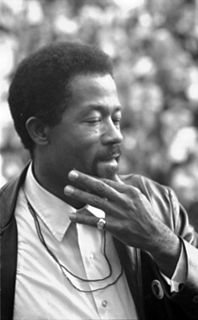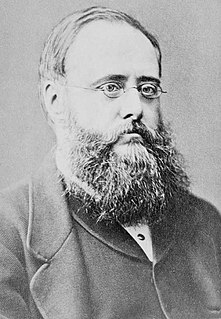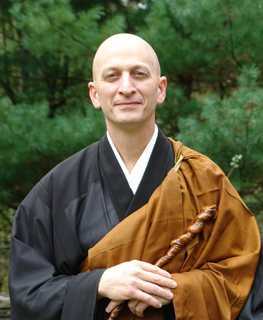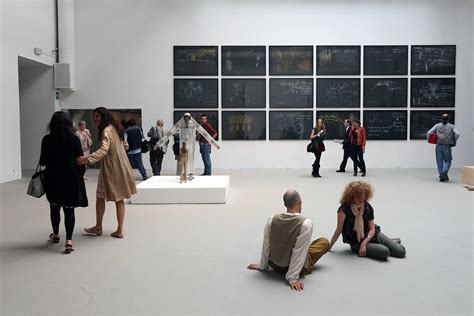A Quote by Rabindranath Tagore
We cannot look upon our lives as dreams of a dreamer who has no awakening in all time. We have a personality to which matter and force are unmeaning unless related to something infinitely personal, whose nature we have discovered, in some measure, in human love, in the greatness of the good, in the martyrdom of heroic souls, in the ineffable beauty of nature, which can never be a mere physical fact nor anything but an expression of personality.
Quote Topics
All Time
Anything
Awakening
Beauty
Cannot
Discovered
Dreamer
Dreams
Expression
Fact
Force
Good
Greatness
Heroic
Human
Human Love
Ineffable
Infinitely
Lives
Look
Look Up
Love
Martyrdom
Matter
Measure
Mere
Nature
Never
Nor
Our
Our Lives
Personal
Personality
Physical
Related
Some
Something
Souls
Time
Unless
We Cannot
Which
Whose
Related Quotes
And why does it make you sad to see how everything hangs by such thin and whimsical threads? Because you’re a dreamer, an incredible dreamer, with a tiny spark hidden somewhere inside you which cannot die, which even you cannot kill or quench and which tortures you horribly because all the odds are against its continual burning. In the midst of the foulest decay and putrid savagery, this spark speaks to you of beauty, of human warmth and kindness, of goodness, of greatness, of heroism, of martyrdom, and it speaks to you of love.
Understanding human nature must be the basis of any real improvement in human life. Science has done wonders in mastering the laws of the physical world, but our own nature is much less understood, as yet, than the nature of stars and electrons. When science learns to understand human nature, it will be able to bring a happiness into our lives which machines and the physical sciences have failed to create.
It is part of our human nature to want to be liked. It is part of our human nature to worry about what others think of us. It is an attribute of greatness and of American exceptionalism to not surrender to our nature, but to be guided by an inner calling to persevere and to prevail, no matter the personal cost.
All that was neither a city, nor a church, nor a river, nor color, nor light, nor shadow: it was reverie. For a long time, I remained motionless, letting myself be penetrated gently by this unspeakable ensemble, by the serenity of the sky and the melancholy of the moment. I do not know what was going on in my mind, and I could not express it; it was one of those ineffable moments when one feels something in himself which is going to sleep and something which is awakening.
The woman who first gives life, light, and form to our shadowy conceptions of beauty, fills a void in our spiritual nature that has remained unknown to us till she appeared. Sympathies that lie too deep for words, too deep almost for thoughts, are touched, at such times, by other charms than those which the senses feel and which the resources of expression can realise. The mystery which underlies the beauty of women is never raised above the reach of all expression until it has claimed kindred with the deeper mystery in our own souls.
I want relations which are not purely personal, based on purely personal qualities; but relations based upon some unanimous accord in truth or belief, and a harmony of purpose, rather than of personality. I am weary of personality. Let us be easy and impersonal, not forever fingering over our own souls, and the souls of our acquaintances, but trying to create a new life, a new common life, a new complete tree of life from the roots that are within us.
Gargoyles were the complement to saints; Leonardo's caricatures were complementary to his untiring search for ideal beauty. And gargoyles were the expression of all the passions, the animal forces, the Caliban gruntings and groanings which are left in human nature when the divine has been poured away. Leonardo was less concerned than his Gothic predecessors with the ethereal parts of our nature, and so his caricatures, in their expression of passionate energy, merge imperceptibly into the heroic.
For my part, I feel that with regard to Nature I live a sort of border life, on the confines of a world, into which I make occasional and transient forays only, and my patriotism and allegiance to the state into whose territories I seem to retreat are those of a moss-trooper. Unto a life which I call natural I would gladly follow even a will-o'-the-wisp through bogs and sloughs unimaginable, but no moon nor fire-fly has shown me the cause-way to it. Nature is a personality so vast and universal that we have never seen one of her features.
It is the Late city that first defies the land, contradicts Nature in the lines of its silhouette, denies all Nature. It wants to be something different from and higher than Nature. These high-pitched gables, these Baroque cupolas, spires, and pinnacles, neither are, nor desire to be, related with anything in Nature. And then begins the gigantic megalopolis, the city-as-world, which suffers nothing beside itself and sets about annihilating the country picture.
Time, which measures everything in our idea, and is often deficient to our schemes, is to nature endless and as nothing; it cannot limit that by which alone it had existence; and as the natural course of time, which to us seems infinite, cannot be bounded by any operation that may have an end, the progress of things upon this globe, that is, the course of nature, cannot be limited by time, which must proceed in a continual succession.






































